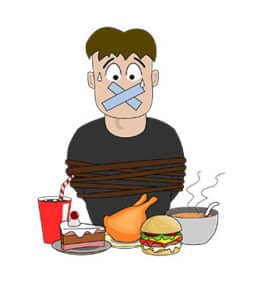What are Probiotics?
What are probiotics?
Probiotics are a combination of live beneficial bacteria and/or yeast that naturally live in our bodies. Both good and bad bacteria are constantly in and on our bodies.
About 100 trillion microorganisms (intestinal microflora or microbiota) live in the intestines of an adult - their number exceeds the number of cells in our body by about 10 times. Some microbes are pathogens, however, many are not only useful but even very essential for our health
In terms of nutrition, the word Probiotics refers to food products or nutritional supplements that contain live microorganisms that help maintain or improve the body's normal microflora (the "good" bacteria).
Probiotics are naturally found in fermented milk products, for example – clabber, kefir, yogurt, sauerkraut, etc.
Probiotics in dietary supplement form are commonly used to help replenish the good bacteria in the gut, especially after taking antibiotics.
Types of probiotics
A wide variety of microorganisms are classified as probiotics, but most of them belong to one of these three groups:
- Lactobacillus. The most common probiotic found in fermented foods. Some strains can help with diarrhea and people who cannot digest lactose (sugar in milk);
- Bifidobacteria. They can be found in some in dairy products. Bifidobacteria can help relieve the symptoms of irritable bowel syndrome, reduce diarrhea and constipation, etc.;
- Saccharomyces boulardii is a yeast found in probiotics. It seems to help fight diarrhea and other digestive problems, but its effects have not yet been fully studied.
What do probiotics do?
Probiotics help our bodies break down food, process indigestible fiber, and promote nutrient absorption.
Healthy intestinal microflora helps protect the mucous membrane of the digestive system from damage. People who do not have enough beneficial bacteria in their digestive tract may develop perforated bowel syndrome, when partially digested food, toxins and microorganisms penetrate into the surrounding tissues through the intestinal walls and through the bloodstream throughout the body. This creates chronic inflammation, which increases the risks of various diseases - metabolic syndrome, fatty hepatosis, prediabetes, diabetes, cardiovascular diseases, autoimmune (for example, Crohn's disease), allergic (e.g. eczema) and oncological disease risks.
Beneficial gut bacteria are also involved in the production of hormonal compounds that spread throughout the body, affecting the functioning of our organs, including the brain.
Intestinal bacteria also play an important role in strengthening our immune system, because the intestines are the largest immune system organ, where immune cells are "trained" to recognize various threats, produce antibodies and destroy "invaders".
If the diversity of intestinal microflora decreases and/or the balance between "good" and "bad" intestinal bacteria is disturbed, dysbiosis occurs. It can cause digestive problems such as irritable bowel syndrome, allergies, and even brain disorders.
How do good gut bacteria affect our weight?
Most scientists agree that gut bacteria also affect metabolism because they help our body:
- Synthesize vitamins (K, B9, B7 and B12);
- Absorb magnesium and iron;
- Absorb calcium;
- Break down carbohydrates;
- Ferment fiber;
- Create short-chain fatty acids. According to animal studies, they can help our bodies use energy more efficiently, feel full, and suppress appetite. However, more research is needed to see if these results are generalizable to humans.
The process of exactly how gut bacteria affect our weight is still not fully understood.
However, there are several studies that link the diversity and "health" of our intestinal microflora with our weight, for example:
- Research on twins, found that those who were obese had a lower diversity of gut bacteria compared to those who were lean;
- Other studies have found that some strains of bacteria can slow weight gain, some can reduce waist size, and others can help with weight loss.
Can probiotics help lose weight?
Although good bacteria help break down nutrients and obtain energy from food, there is no clear evidence that taking probiotic supplements or foods containing probiotics can help you lose weight.
Research results are conflicting.
There are clinical studies showing the association of probiotics with weight loss. For instance - people with a large amount of visceral fat were able to lose some of this fat by drinking 200 grams of fermented milk containing probiotics every day for 3 consecutive months (visceral fat is fat that surrounds our organs and can affect hormone function, which in turn can lead to obesity, insulin resistance, and type 2 diabetes);
But there are also studies of probiotic supplements that show conflicting results — some probiotic strains show an association with weight loss, while others do not.
Probiotics are likely to affect our weight, but their effectiveness depends on several factors, including:
- Quantity (doses);
- Duration of use;
- Probiotic type;
- User's age;
- Starting weight.
Probiotics and physical activity
Regular exercise is good for the gut because:
- Physical activity can help reduce visceral fat;
- Exercise accelerates digestion. That is, pathogenic bacteria are excreted faster through your digestive system and, therefore, can cause less damage.
On the other hand, prolonged and intense physical exercise can disrupt the functioning of the digestive tract. This is evidenced by the fact that representatives of endurance sports are more likely to suffer from problems related to the digestive tract and upper respiratory tract infections than the rest of the population, that is, probiotics can be especially useful for them.
Gut microflora also helps regulate metabolism and hydration (the body's ability to absorb water), which is very important during exercise.
There are relatively few studies on the effect of exercise on intestinal microflora. Preliminary results show that exercise combined with food restriction (which dieters often do at the same time) appears to reduce the number of beneficial bacteria in the gut. Consuming probiotic foods, drinks, and supplements can help offset this reduction.
Risks associated with the use of probiotic supplements
Although probiotics are generally safe, there are some risks associated with their use:
- Quality. As dietary supplements, probiotics are not subject to such rigorous testing as pharmaceuticals. This means that you cannot be sure of the quality of the purchased product:
- Are there enough bacteria in the product to affect anything?
- Does the product really contain the probiotics indicated on the label? There were reports of some products whose contents differed from those indicated on the label;
- Are the bacteria in the product alive when you consume it? If a particular dietary supplement has not been properly manufactured, stored, or its shelf life is coming to an end, the bacteria contained in it may no longer have a beneficial effect on your intestinal microflora.
- Different strains of bacteria. Different probiotic supplements often contain different strains of bacteria. As mentioned above, it is still unclear to researchers which strains may be more effective for weight loss, and which are more suitable for solving other health problems;
- Problems with the immune system. People with weakened immune systems or other serious diseases can get sick when taking probiotics. Probiotics should be avoided if you are taking medications that suppress the immune system.
Be sure to consult your doctor before taking any probiotic supplements.
Key takeaways
Although probiotic supplements are considered safe for most people, consult your doctor before taking them.
In some cases, during the first few days of taking probiotic supplements, there may be minor stomach upsets - diarrhea and/or flatulence. Allergic reactions are also possible.
It should be remembered that the word probiotics is applied to many different microorganisms – bacteria, fungi (including yeast), viruses, and protozoa.
Respectively – the effect of different probiotics on the intestinal microflora is different.
Some research suggests that Lactobacillus gasseri can help obese people lose weight and belly fat, especially when taken with a healthy, wholesome diet.
That's all for now.
Eat delicious and be healthy!
A clinician's primer on the role of the microbiome in human health and disease
Fast Facts About The Human Microbiome
Probiotics, Immunity and Exercise: A Review.
Effects of Probiotics and Synbiotics on Weight Loss in Subjects with Overweight or Obesity
Probiotics, prebiotics and synbiotics for weight loss and metabolic syndrome in the microbiome era
Effect of Lactobacillus gasseri BNR17 on Overweight and Obese Adults
Probiotics: How Effective Are They in the Fight against Obesity?

Help to maintain this site, create interesting articles and delicious low-calorie recipes!
Share this article
Follow me on Facebook
I recommend reading these articles as well

How do Diet Sodas affect our health?
How do Diet Coke and other low-calorie drinks affect our health and weight?

How to keep your skin healthy and beautiful?
Kā saglabāt veselīgu un jauneklīgu “mirdzošu” ādu? Kā aizkavēt dabisko ādas novecošanos un novērst tādas ādas problēmas kā ādas sausums, pinnes un grumbas?

About "fast weight loss"
Well, what's hot and many are in a hurry to fix what can still be fixed - during the winter and Covid's "work"…. Clubs are closed, but places and opportunities for sports can always be found. And that is what we are doing and will be doing hard now. Is not it so?

Clean eating
What is clean eating? Is it another fashionable diet or can it really help normalize weight and improve our health and well-being?

